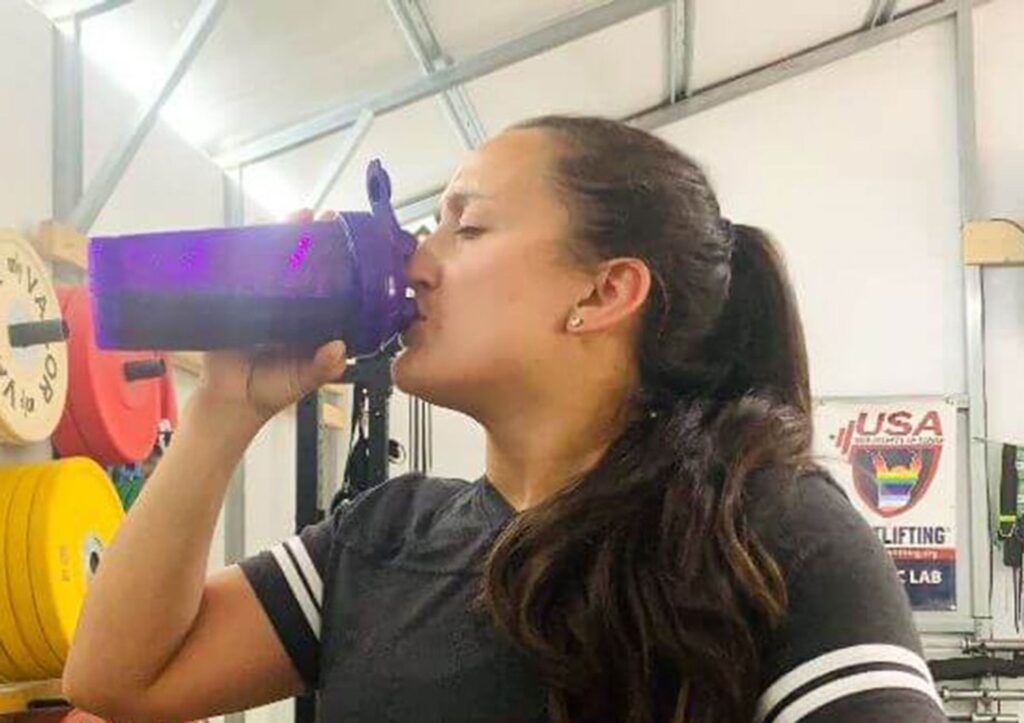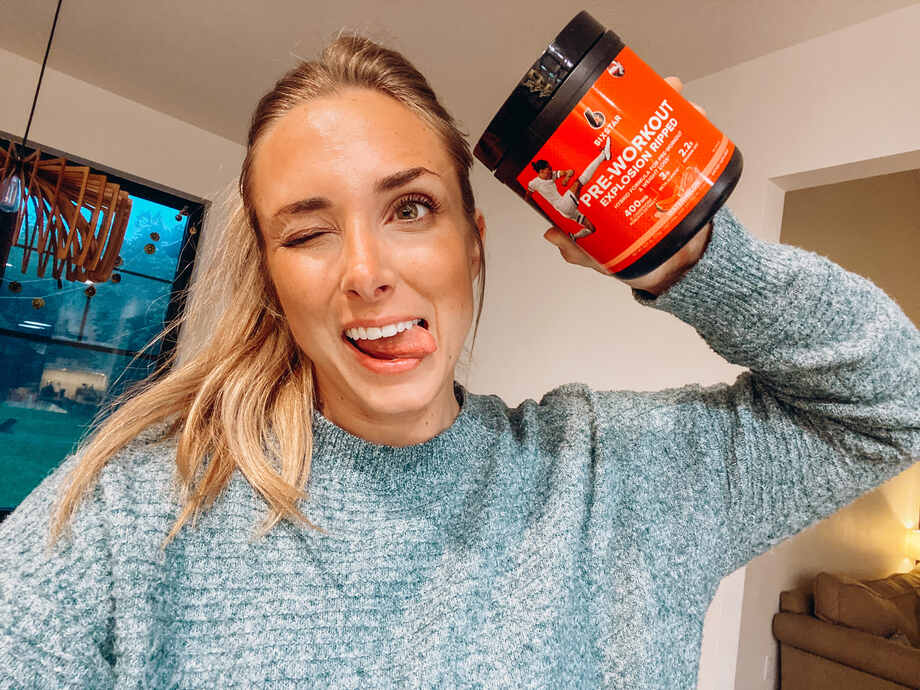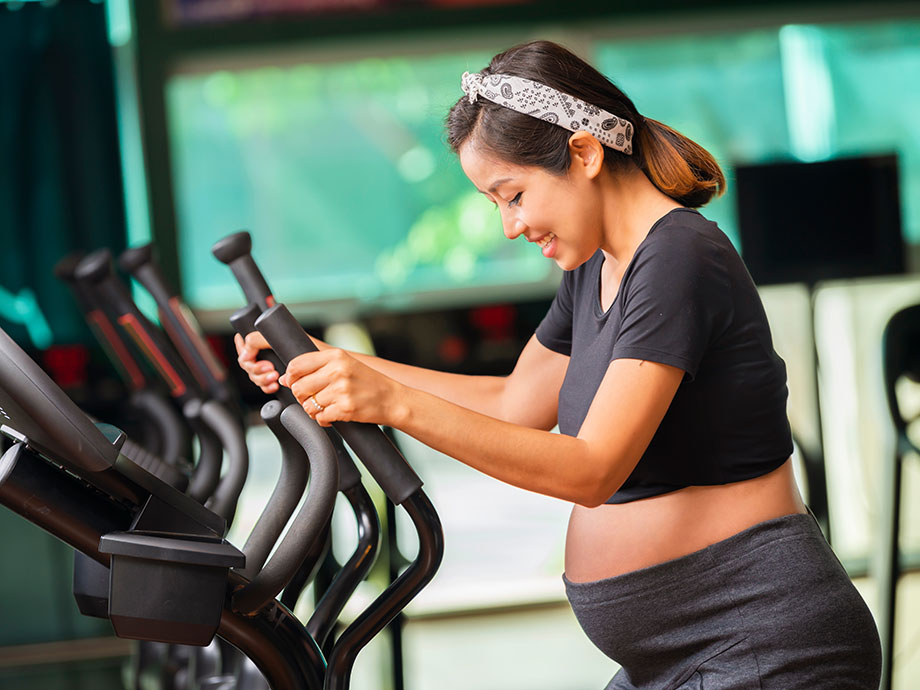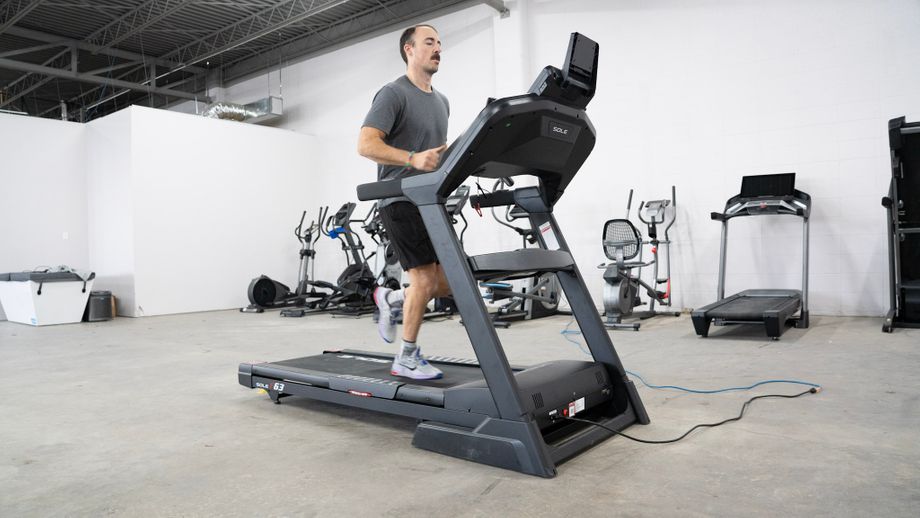Pre-workout supplements can provide training motivation in the form of an awe-inspiring pump and elevated energy levels, but even a high-quality pre-workout may occasionally cause nausea or stomach upset. A potential pre-workout side effect that lifters may experience aside from jitters or elevated heart rate.
Some might think these are signs the pre-workout is doing its job, but that’s not necessarily correct. Some pre-workout supplements contain high doses of ingredients known to cause undesirable sensations that might have nothing to do with that pump.
In this article, I’ll explore pre-workout nausea and other common side effects of pre-workouts, and show how you can reduce their severity or eliminate it.
RELATED: Coffee vs Pre-Workout
Why Does My Pre-Workout Make Me Nauseous?
Before I get into the side effects of pre-workouts, you should first understand what pre-workout supplements are supposed to do, how they do it, and what goes into a pre-workout.
Common Pre-Workout Ingredients
Fit folks use pre-workout supplements to help increase their energy and focus for a workout. Often called multi-ingredient supplements,1 pre-workouts typically contain stimulants like caffeine and other ingredients that may help improve athletic performance.

Here’s a closer look at some of the more common ingredients and their role in exercise performance:
- Caffeine: is a nervous system stimulant; it reduces the onset of sleepiness and may contribute to increased focus and prolonged physical activity2. It’s also the major culprit behind pre-workout nausea.
- Creatine: this is the most common, and most studied sports supplement. Creatine supplementation may help improve muscular endurance, strength, and size3.
- Beta-alanine: another popular bodybuilding supplement, beta-alanine, like creatine, may help increase muscular endurance and strength4 by reducing lactic acid buildup in muscles. However, you’re probably familiar with the tingling sensation (aka paresthesia) it can cause.
- BCAAs: or branched-chain amino acids are so named because of their branched structure. These amino acids are important for muscle development and may promote improved post-training recovery5.
You’ll also occasionally see nitric oxide boosters, like citrulline and arginine, which are popular bodybuilding supplements that help increase blood flow to your muscles. Increased blood flow to muscles means a more pronounced “pump” and reduced muscular fatigue6. Carbohydrates are another well-known pre-workout, particularly for endurance athletes or high-intensity exercise. Carbs increase blood sugar, which is the direct form of energy used by your muscles. Carbs are also an ideal post-workout supplement for promoting sustained energy levels for protein synthesis to help build or maintain muscle.
RELATED: Best Pre-Workout Ingredients
What Causes Pre-Workout Nausea?
Nausea—in tandem with other gastrointestinal issues like bloating or cramps—is one of the most common pre-workout side effects. Too much caffeine is the common culprit behind gastrointestinal issues, especially when consumed on an empty stomach. Caffeine increases gastric emptying and stimulates digestion7 and, when taken in large amounts or with other ingredients, may lead to an unexpected pre-workout bathroom trip. Nausea is also often accompanied by headaches and dizziness.

Ingredients like creatine and sodium bicarbonate also contribute to bloating and nausea. Both supplements work at the cellular level to increase energy production8 and muscular contraction9. But because of how they work, both promote water retention and bloating.
RELATED: Creatine vs Pre-Workout: Should You Take Both?
Carbohydrates and sugar alcohols are other common ingredients in pre-workouts that may cause nausea and stomach upset. Sugar alcohols are used in most sweeteners, and your gut can digest them poorly, thus disrupting the water concentration in your intestines10. The result is stomach upset and loose stool or diarrhea.
How To Get Rid of Pre Workout Nausea
Whether you’re a fitness enthusiast or an elite bodybuilder, you’ve likely experienced nausea stemming from your pre-workouts. But you can avoid it.
The first thing to consider is to be sure you drink enough water when exercising, regardless of your fitness level. An electrolyte mix can help ensure proper hydration. Your best bet is to try a lower dose of your pre-workout or a stimulant-free pre-workout.

Also, please don’t dry-scoop your pre-workout, either. Dry scooping is dangerous and can worsen nausea, among other things. Although trendy and quick, you can’t control the dose, and water helps slow the release and make it more palatable.
Lastly, don’t stack pre-workouts or other stimulants, and try to limit how many supplements you take. Also, timing is important—try not to take your pre-workout on an empty stomach. Give your pre-workout enough time to kick in before your workout.
RELATED: When To Take Pre-Workout
Other Side Effects of Pre-Workout Supplements
While pre-workouts are great for starting (and completing) your training session, they aren’t without their potential negative side effects, nausea being the most common. Here are a few other side effects.
Jitters or Anxiety
Pre-workouts can contain high doses of stimulants like caffeine, which can make you feel jittery. Caffeine increases alertness, as well as heart rate and blood pressure. Too much can cause tachycardia and feelings of nervousness, although how much is too much is subjective. A typical cup of coffee contains about 100 milligrams (mg) of caffeine, whereas some pre-workouts can contain anywhere from 100 mg up to 400 mg of caffeine. The FDA recommends limiting your caffeine intake to 400 mg (about five cups of coffee) to avoid adverse side effects11.

Other stimulants, such as Yohimbe and green tea extract (more caffeine), can strongly contribute to feelings of jitteriness, especially when combined in a single supplement.
RELATED: Best Pre-Workout Without Beta-Alanine
Sleep Disruptions
Energy and focus are the desired side effects of any pre-workouts. Again, caffeine usually delivers here, but most pre-workouts work by combining the ingredients, and more, discussed here. Caffeine can give you mental clarity and a buzz of energy, while arginine and citrulline can increase blood flow and the sense of the pump. Both creatine and beta alanine help fuel energy production and reduce fatigue at the muscular level, which means more energy for more reps.
So, if you take your pre-workout later in the day, you may run into trouble falling or staying asleep. You can avoid disrupted sleep by lowering your dosage or taking a non-stim pre-workout if you’re an evening trainer.
Pre Workout Nausea: Final Thoughts
Pre-workout supplements are great for increasing energy levels and enhancing workouts. However, they’re not without their side effects. A few ingredients found in most pre-workouts likely to contribute to exercise-induced nausea are caffeine, creatine, citrulline, and beta-alanine.
If you’re sensitive to stimulants or any supplements, try lower doses or stimulant-free supplements. There’s also nothing wrong with cycling your supplements. Find the right pre-workout for you, and find the dose that works to maintain your energy levels.
If you’re new to pre-workout supplements, check out our Buyer’s Guide on what to look for in a pre-workout.
Pre Workout Nausea: FAQs
Why do I feel nauseous from pre-workout?
Pre-workouts often contain large doses of stimulants like caffeine that can irritate your stomach and cause cramps, indigestion, and headaches.
What to do if you feel bad after taking pre-workout?
Stay hydrated, and don’t over-exert yourself until you feel better. Also, consider whether taking your pre-workout on an empty or full stomach affects your discomfort. If the nausea is too much, stop using the pre-workout until you can consult with a doctor, personal trainer, or nutritionist.
Is it okay to take pre-workout on an empty stomach?
If you’re trying to avoid nausea, I would advise against taking pre-workout on an empty stomach as stimulants like caffeine can have a more potent effect when fasted. Food helps delay the onset of a pre-workout or blunt its side effects. Consider having a small snack with your pre-workout to avoid nausea or other negative side effects.
References
- Harty PS, Zabriskie HA, Erickson JL, Molling PE, Kerksick CM, Jagim AR. Multi-ingredient pre-workout supplements, safety implications, and performance outcomes: a brief review. J Int Soc Sports Nutr. 2018 Aug 8;15(1):41. doi: 10.1186/s12970-018-0247-6. PMID: 30089501; PMCID: PMC6083567.
- Guest NS, VanDusseldorp TA, Nelson MT, Grgic J, Schoenfeld BJ, Jenkins NDM, Arent SM, Antonio J, Stout JR, Trexler ET, Smith-Ryan AE, Goldstein ER, Kalman DS, Campbell BI. International society of sports nutrition position stand: caffeine and exercise performance. J Int Soc Sports Nutr. 2021 Jan 2;18(1):1. doi: 10.1186/s12970-020-00383-4. PMID: 33388079; PMCID: PMC7777221.
- Antonio, J., Candow, D.G., Forbes, S.C. et al. Common questions and misconceptions about creatine supplementation: what does the scientific evidence really show?. J Int Soc Sports Nutr 18, 13 (2021). https://doi.org/10.1186/s12970-021-00412-w
- Trexler ET, Smith-Ryan AE, Stout JR, Hoffman JR, Wilborn CD, Sale C, Kreider RB, Jäger R, Earnest CP, Bannock L, Campbell B, Kalman D, Ziegenfuss TN, Antonio J. International society of sports nutrition position stand: Beta-Alanine. J Int Soc Sports Nutr. 2015 Jul 15;12:30. doi: 10.1186/s12970-015-0090-y. PMID: 26175657; PMCID: PMC4501114.
- Khemtong C, Kuo C-H, Chen C-Y, Jaime SJ, Condello G. Does Branched-Chain Amino Acids (BCAAs) Supplementation Attenuate Muscle Damage Markers and Soreness after Resistance Exercise in Trained Males? A Meta-Analysis of Randomized Controlled Trials. Nutrients. 2021; 13(6):1880. https://doi.org/10.3390/nu13061880
- Viribay A, Burgos J, Fernández-Landa J, Seco-Calvo J, Mielgo-Ayuso J. Effects of Arginine Supplementation on Athletic Performance Based on Energy Metabolism: A Systematic Review and Meta-Analysis. Nutrients. 2020 May 2;12(5):1300. doi: 10.3390/nu12051300. PMID: 32370176; PMCID: PMC7282262.
- Nehlig A. Effects of Coffee on the Gastro-Intestinal Tract: A Narrative Review and Literature Update. Nutrients. 2022 Jan 17;14(2):399. doi: 10.3390/nu14020399. PMID: 35057580; PMCID: PMC8778943.
- Wax B, Kerksick CM, Jagim AR, Mayo JJ, Lyons BC, Kreider RB. Creatine for Exercise and Sports Performance, with Recovery Considerations for Healthy Populations. Nutrients. 2021 Jun 2;13(6):1915. doi: 10.3390/nu13061915. PMID: 34199588; PMCID: PMC8228369.
- Grgic J, Pedisic Z, Saunders B, Artioli GG, Schoenfeld BJ, McKenna MJ, Bishop DJ, Kreider RB, Stout JR, Kalman DS, Arent SM, VanDusseldorp TA, Lopez HL, Ziegenfuss TN, Burke LM, Antonio J, Campbell BI. International Society of Sports Nutrition position stand: sodium bicarbonate and exercise performance. J Int Soc Sports Nutr. 2021 Sep 9;18(1):61. doi: 10.1186/s12970-021-00458-w. PMID: 34503527; PMCID: PMC8427947.
- Mäkinen KK. Gastrointestinal Disturbances Associated with the Consumption of Sugar Alcohols with Special Consideration of Xylitol: Scientific Review and Instructions for Dentists and Other Health-Care Professionals. Int J Dent. 2016;2016:5967907. doi: 10.1155/2016/5967907. Epub 2016 Oct 20. PMID: 27840639; PMCID: PMC5093271.
- Commissioner O of the. Spilling the beans: How much caffeine is too much? U.S. Food and Drug Administration. Accessed April 21, 2024. https://www.fda.gov/consumers/consumer-updates/spilling-beans-how-much-caffeine-too-much.






